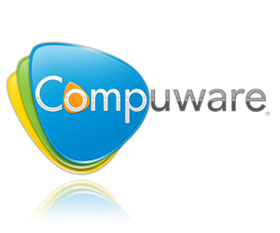Collaboration calls for integrated management
Today’s technologies inter-relate and integrate business activities rather than simply streamlining and automating them and it is for this reason that they can no longer be managed in a siloed way.
However this shouldn’t make managing IT more difficult, but it does mean fundamental changes – taking a step back to see the big picture and then implementing management tools and processes to support integrated communications and applications.
Unified communications and collaboration (UC&C) is a prime example. Until it came into the mainstream a few years ago, organisational communication was managed in silos. Initially, of course, real time business communication was based almost exclusively on the telephone. Management of telephony was based on PBXs operating within an isolated environment. Much of the management revolved around moving phones and cables in patch panels.
New communication channels emerged, including instant messaging, mobile telephony and video, each of which was also managed on its own, without reference to the others. The advent of IP telephony shifted telephony away from a basis in equipment to a software application. This allowed integration to the new communication channels and increased functionality (such as click to dial from the instant messaging client). In the process, it has completely changed the approach to management.
The pressure
The proliferation of communications channels has created pressure for organisations at both a technical and human resources level. There is a need to provide up to date infrastructure that is reliable, secure, and flexible. At the same time, customers, business partners, and employees are demanding modern communication tools that keep them connected and mobile as well as personal and involved.
Internet Protocol UC&C technologies are the future – but no one integrated organisational IT estate will be the same as another because of differing business needs, the age of the existing estate and many other factors.
Consult
Essentially, the shift from the telephone to UC&C is as much a shift in business strategy as it is a shift in technology. Because UC&C provides for multi-faceted communication and, therefore, extended levels and types of collaboration, it means that no organisation can operate independently of its general environment. Though there might be fairly effective technical barriers between the organisation and the wider community, the flow of emotional and intellectual influence into and out of the organisation is virtually unlimited.
So, many organisations are turning to managed services providers to manage their UC&C infrastructure. They’re realising there is absolutely no benefit in reinventing the wheel when expertise and experience derived by a managed services provider from multiple instances of UC&C across multiple industries under wide-ranging business, cultural, and economic conditions can so easily be distilled into just the right solution for a particular business.
Choosing services
The role a managed services provider plays for an organisation depends on the maturity of the organisation. Firstly, organisations that haven’t yet started a coherent journey towards IP telephony and find themselves confronted by a myriad of vendors and technologies and, potentially, significant cost, want a managed services provider to take responsibility for reducing the cost and perceived challenges of moving to UC&C. The organisation can then focus on getting its head around the change and transformation that UC&C demands. Then, there are those that have started the IP telephony journey and begun to see the benefits, but want a managed services provider to aggressively create for them a fully standardised and unitary environment.
Lastly, there are organisations that want to proceed incrementally. They’ve already got silos of UC&C technology and want a managed services provider to help them integrate them, one by one, over time.
Core to all these different requirements, however, is the fact that there is a need to manage the service, the individual technology layers, and the user experience at the same time.
The journey
Inevitably, achieving such holistic management takes time. For most organisations, whether they’ve begun to move to UC&C or are part-way there, the journey progresses through three quite specific phases (see diagram below)
Stage 1: For organisations that feel unable to accelerate their technology migration, outsourcing is the first step towards consolidating maintenance contracts, lowering cost, and increasing consistency of management.
Stage 2: The implications of centralisation and consolidation are that the system now becomes much more mission critical, with many more users relying on its performance and availability. The consequences of failure will be felt more widely. So, the service provider needs not only to architect for redundancy and resilience but also to pay attention to management processes − particularly the incident-problem change- release cycle.
Stage 3: The issues here are all about effective management of a multi-vendor, mission-critical system founded on a potentially complex ecosystem of integrated applications. The ecosystem is not just mission critical, it’s specific to the organisation − making the discipline and maturity of management even more important than in the centralised IP telephony phase. Keeping a lid on ongoing costs is key.
For example, every software upgrade of an individual application requires compatibility testing with numerous other applications. It’s important, therefore, that the number of interfaces is minimised. There is no single vendor that currently offers a true end to end UC&C solution and, given that most organisations have existing investments they need to leverage, the service provider will take a best-of-breed approach.
Choosing service providers
Because UC&C is still relatively new in its adoption phase, organisations are uncertain about how it will affect their performance and bottom line and how they will manage its lifecycle. They want to know what the roadmap is, so that they have some confidence in committing their business to this new way of being.
It’s vital, therefore, that service providers demystify the various components of UC&C and make it more centred on and applicable to their client’s business model. At the end of the day, UC&C helps to drive profitable growth – if implemented and supported in an optimal manner. The organisation needs to see the clear benefits of adopting a UC&C strategy at a bottom line level within profit and loss performance. It also helps to know that, with their deep skills set and close relationships with manufacturers, the right sort of services provider can take away from IT the apprehension involved in first migrating a mass of different systems into a single unified environment and then keeping that environment optimised and current.
Organisational change
Whether or not an organisation chooses to manage its UC&C through a managed services provider, the move towards UC&C automatically brings with it internal organisational changes. Before UC&C, voice was managed by the telecommunications specialists in the organisation, video by Facilities, and e-mail and the Internet by IT.
However, just as the strategic principle that underlies UC&C is coherent integration of different aspects of communication, so the management principle that supports UC&C should be coherent and integrated across the various silos that used to manage their part of the communication spectrum. Taking down the barriers between the various departments requires considerable management skill. Again, having a managed services provider is useful, because the provider can mediate many of these issues – or be the rationale for a different organisational structure in which the silos are more easily able to move into a closer working relationship with each other because they all need to work with the service provider.



